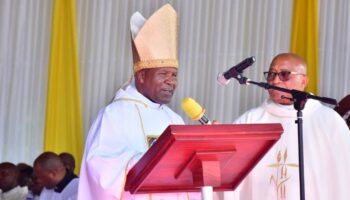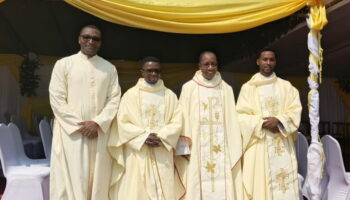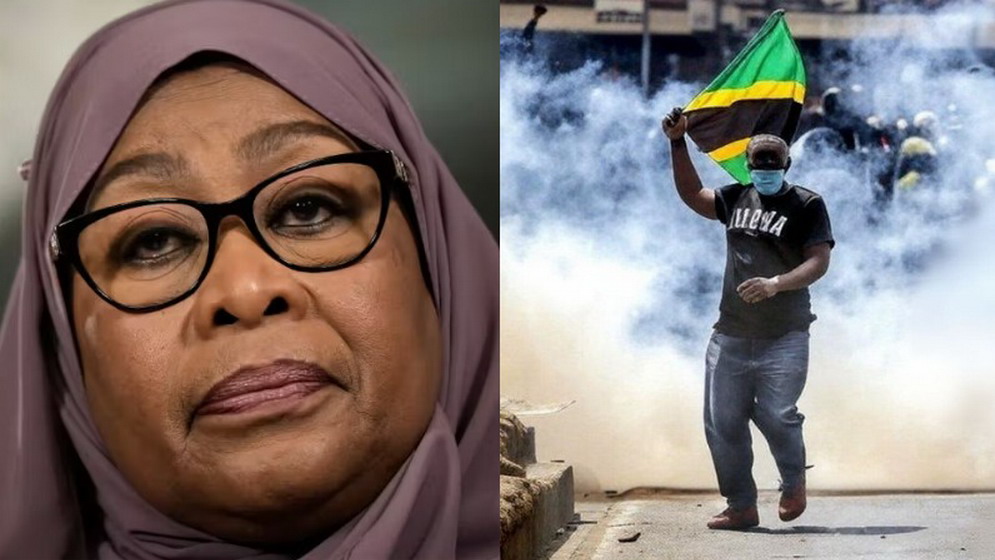
There is no logical/straightforward answer or single narrative that can fully explain how Tanzania reached this tragic and deadly turning point, particularly the killing of young people the so-called, “Generation Z” in what was once a relatively peaceful nation.
By Isaack *
This escalation follows the rigged and fraudulent election on October 29, 2025. Such brutality and mass killings have never been seen in the history of Tanzania, a country once known as the “Geneva of Africa.” Today, it has sadly become a graveyard for brothers and sisters unfairly targeted and killed. According to the opposition party (CHADEMA), at least 700 people have died.
The pressing question now is: “What comes next for Tanzania after October 29?” How can we restore our island of peace, which was once a hallmark of our cultural identity? Furthermore, how do we rebuild trust, peace, and justice between citizens and the government? These urgent inquiries demand our collective attention and action in the aftermath of this turmoil.
On the morning of the election, anticipation and anxiety filled the air as citizens prepared to vote, with many believing that protests were unlikely based on past experiences. However, discussions on social media reflected a different reality, as debates emerged over planned protests against the decline of multiparty democracy. Concerns were raised about the widely perceived non-competitive nature of the election, electoral irregularities, and ongoing cases of abduction and enforced disappearance involving government critics.
The national-wide protest
By midnight on election day, internet access had been severely restricted, with many mobile networks only operational through Virtual Private Networks (VPNs). Protests erupted across Dar es Salaam, marked by the burning of government properties, fuel stations, and businesses, as demonstrators targeted the properties of supporters of the ruling party. By evening, the internet was completely shut down, rendering it inaccessible by any means.
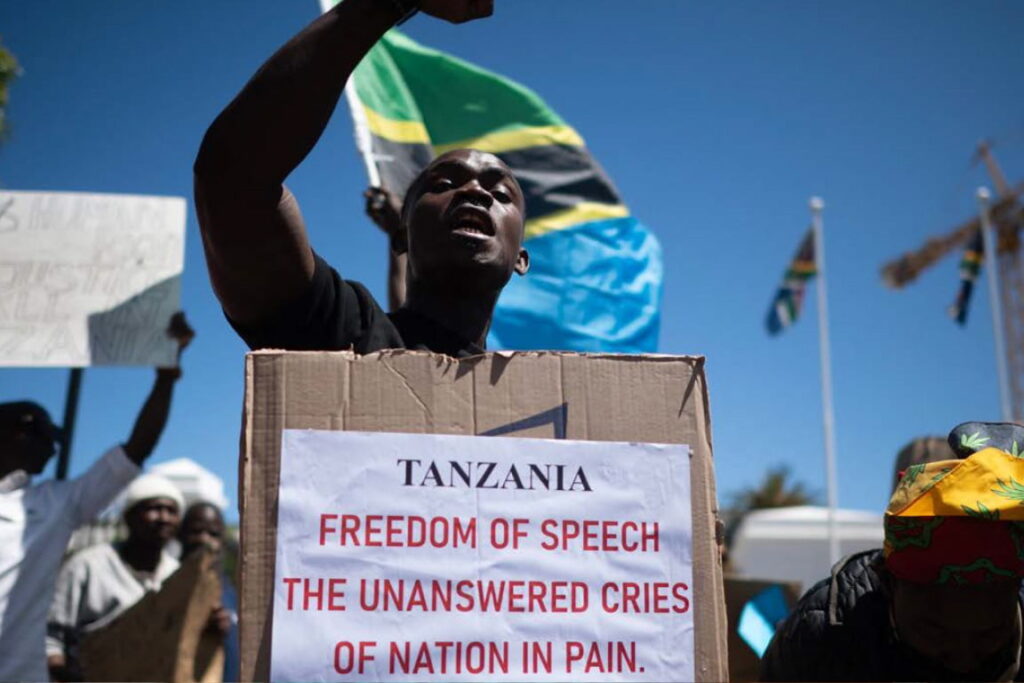
Protests spread to other regions of the country, including Arusha, Mbeya, Mwanza and Tunduma. In Tunduma, the situation intensified, with several properties set on fire, including a courthouse and government vehicles, while over 5,000 trucks became stranded at the border. The day concluded with a curfew announcement, restricting movement from 6 pm onward.
Since the protests began, numerous reports have emerged of police shootings. Tragically, many victims were bystanders hit by stray bullets. On social media, a woman recounted the harrowing story of witnessing police shoot and kill her sister in her car, in front of her child. These incidents reflect not the actions of a lawful state but the hallmarks of extrajudicial killings. While the Tanzanian government has officially denied any fatalities during the five-day lockdown, evidence from the ground reveals a far more brutal reality.
Non-derogable right
The right to life is intrinsically sacred, valuable, and deserving of profound respect. It is a non-derogable right, meaning it cannot be suspended, even in a state of emergency. The UN Human Rights Committee emphasizes in its General Comment on the Right to Life that this is a “supreme right from which no derogation is permitted, even in situations of armed conflict and other public emergencies.”
The use of lethal force by law enforcement is governed by strict principles of necessity and proportionality. According to guidance from the UN’s Office of the High Commissioner for Human Rights (OHCHR), firearms should only be employed as a last resort against an imminent threat of death or serious injury. The recent killings, however, were not proportionate responses aimed at maintaining public order; they amount to arbitrary deprivations of life.
This blatant disregard for human life is further compounded by a troubling lack of respect for the rule of law. When government security forces kill citizens, and the government itself fails to acknowledge these deaths, a significant crisis of accountability emerges.
Calls for independent inquiry
A growing chorus of local and international voices is demanding accountability for the killings and widespread human rights abuses that have followed Tanzania’s disputed general election. President Samia Suluhu Hassan’s government can no longer remain silent; it must move beyond blanket denials and take immediate, concrete steps to address these atrocities.
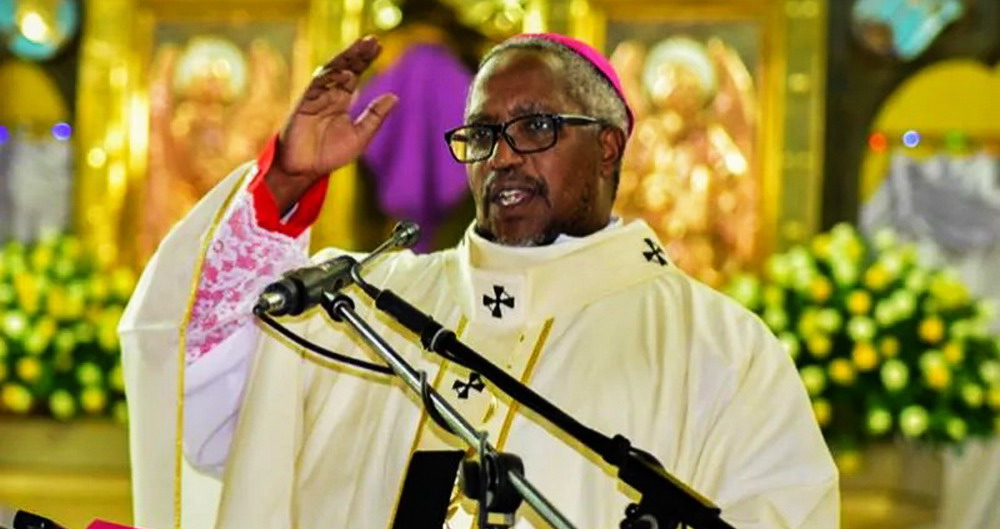
This process should begin with a full, independent, and transparent investigation into each death that occurred during the election period. Following this, the government must publicly acknowledge the victims and issue an apology to their families. Additionally, there should be swift prosecution of the security officers responsible for these unlawful killings, along with full reparations for the families who have lost their loved ones.
Additionally, many civil society organizations, opposition parties, religious leaders, and international observer missions are calling for an independent and impartial investigation into the deaths of civilians, journalists, and police officers during what has been described as the largest protests in Tanzania’s history. The violence was met with a deadly crackdown by security forces and a nationwide internet shutdown, casting a dark shadow over the nation’s democratic process and prompting urgent calls for constitutional reforms.
At a Eucharistic celebration dedicated to the victims of these atrocities and their families, Archbishop Jude Thaddeus Rwa’ichi of Dar es Salaam stressed that the bloodshed “does not reflect the true face of Tanzania; it is an abomination before God.” In light of the election-related violence, Pope Leo XIV also called for peace and dialogue. He urged prayers “for Tanzania, where, following the recent elections, violent clashes have broken out, leaving many victims. I urge everyone to avoid all forms of violence and to follow the path of dialogue.”
Tanzania requires holistic healing – not cosmetic fixes or the notion of “funika kombe mwanaharamu apite” (cover the pot so the shame passes), but an approach which is deeper and honest healing. Those who lost loved ones must be allowed to mourn with dignity, and the injured should receive the treatment and comfort they need. The nation deserves the truth about what transpired – not silence or manipulation. Without truth and accountability, there can be no forgiveness; without justice, there is no peace.
* Father Isaack, IMC, missionary in Tanzania.

